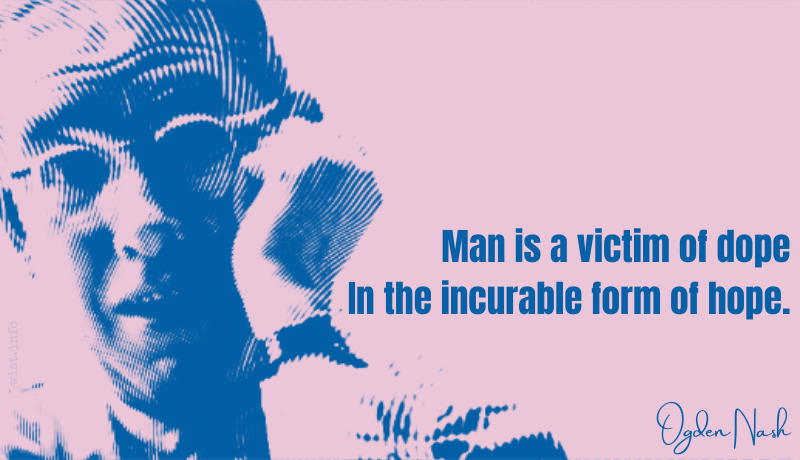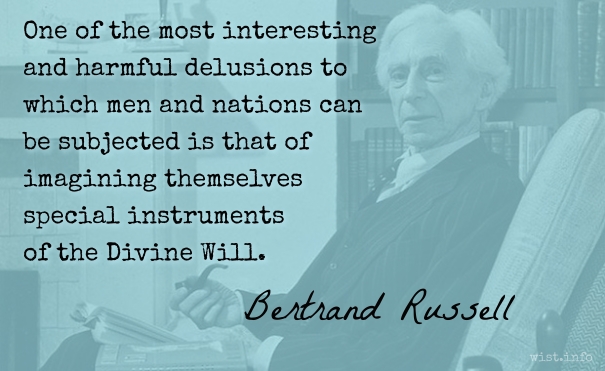Where this will end? In the Abyss, one may prophecy; whither all Delusions are, at all moments, traveling; where this Delusion has now arrived. For if there be a Faith, from of old, it is this, as we often repeat, that no Lie can live for ever. The very Truth has to change its vesture, from time to time; and be born again. But all Lies have sentence of death written down against them, and Heaven’s Chancery itself; and, slowly or fast, advance incessantly towards their hour.
Thomas Carlyle (1795-1881) Scottish essayist and historian
The French Revolution: A History, Part 1, Book 6, ch. 3 (1.6.3) (1837)
(Source)
Carlyle is speaking of the delusion that the wealthy and land-owners of pre-Revolutionary France could forever oppress their tenants with taxes and rent without finally driving them to bloody revolution.
A core phrase here was latched onto by Martin Luther King, Jr., who incorporated it as standard fare in his speeches in the mid- and late 1960s.
We shall overcome, because Carlyle is right, "No lie can live forever."
[Examples: 1, 2, 3, 4]
Quotations about:
delusion
Note not all quotations have been tagged, so Search may find additional quotes on this topic.
The same holds true of almost every superstition — as astrology, dreams, omens, judgments, and the like — wherein men, pleased with such vanities, attend to those events which are fulfilments; but neglect and pass over the instances where they fail (though this is much more frequently the case).
[Eadem ratio est fere omnis superstitionis, ut in astrologicis, in somniis, ominibus, nemesibus, et hujusmodi; in quibus homines delectati hujusmodi vanitatibus advertunt eventus, ubi emplentur; ast ubi fallunt, licet multo frequentius, tamen negligunt et praetereunt.]
Francis Bacon (1561-1626) English philosopher, scientist, author, statesman
Instauratio Magna [The Great Instauration], Part 2 “Novum Organum [The New Organon],” Book 1, Aphorism # 46 (1620) [tr. Johnson (1859)]
(Source)
See also Bacon.
(Source (Latin)). Alternate translations:
All superstition is much the same, whether it be that of astrology, dreams, omens, retributive judgment, or the like; in all of which the deluded believers observe events which are fulfilled, but neglect and pass over their failure, though it be much more common.
[tr. Wood (1831)]
And such is the way of all superstition, whether in astrology, dreams, omens, divine judgments, or the like; wherein men, having a delight in such vanities, mark the events where they are fulfilled, but where they fail, though this happen much oftener, neglect and pass them by.
[tr. Spedding (1858)]
The same method is found, perhaps, in every superstition, like astrology, dreams, omens, divine judgements, and so on: people who take pleasure in such vanities notice the results when they are fulfilled, but ignore and overlook them when they fail, though they do fail more often than not.
[tr. Silverthorne (2000)]
That’s how it is with all superstition -- involving astrology, dreams, omens, divine judgments, and the like, Men get so much pleasure out of such vanities that they notice the confirming events and inattentively pass by the more numerous disconfirming ones.
[tr. Bennett (2017)]
But if I err in this Opinion, that the Soul of Man is immortal, sure it is a pleasing Error, so pleasing that I can never shake it off while I live.
[Quod si in hoc erro, qui animos hominum immortalis esse credam, libenter erro nec mihi hunc errorem, quo delector, dum vivo, extorqueri volo.]
Marcus Tullius Cicero (106-43 BC) Roman orator, statesman, philosopher
De Senectute [Cato Maior; On Old Age], ch. 23 / sec. 85 (23.85) (44 BC) [tr. J. D. (1744)]
(Source)
(Source (Latin)). Alternate translations:
But if it be in erroure and oute of trouthe aftir the doctryne and scole of Epycures by cause that I beleve that the soules be undedly and Immortelle perdurable and evirlastyng I answere you that this errour pleasith me and I consente me in it right gladly and as long tyme as I lyve I wille not that any philosopher nor any othir of what condicyon that evir he be take awey fro me this erroure wherin I delyte me.
[tr. Worcester/Worcester/Scrope (1481)]
And if I do err because I think that the souls of men be immortal, verily I am well contented in the same error still to continue, and as long as I live I will never renounce nor recant the same, wherein I take such singular pleasure and comfort.
[tr. Newton (1569)]
But if I do erre that the soules of men bee immortall, I do err willingly, neither will I while I live be wrested from mine opinion wherein I am delighted.
[tr. Austin (1648), ch. 24]
My hope's, if this assurance hath deceiv'd,
(That I Man's Soul Immortal have believ'd)
And if I erre, no Pow'r shall dispossess
My thoughts of that expected happiness.
[tr. Denham (1669), Part 4]
But if I should be mistaken in this Belief, that our Souls are immortal, I am however pleased and happy in my Mistake; nor while I live, shall it ever be in the Power of Man, to beat me out of an Opinion, that yields me so solid a Comfort, and so durable a Satisfaction.
[tr. Logan (1744)]
And after all should this my firm persuasion of the soul's immortality prove to be a mere delusion, it is at least a pleasing delusion, and I will cherish it to my latest breath.
[tr. Melmoth (1773)]
But if I err in this, that I believe the soules of men to be immortal, I err willingly, nor do I wish this error to be wrested from me while I live.
[Cornish Bros. ed. (1847)]
And if I am wrong in this, that I believe the souls of men to be immortal, I willingly delude myself : nor do I desire that this mistake, in which I take pleasure, should be wrested from me as long as I live.
[tr. Edmonds (1874)]
But if I err in believing that the souls of men are immortal, I am glad thus to err, nor am I willing that this error in which I delight shall be wrested from me so long as I live.
[tr. Peabody (1884)]
But if I am wrong in thinking the human soul immortal, I am glad to be wrong; nor will I allow the mistake which gives me so much pleasure to be wrested from me as long as I live.
[tr. Shuckburgh (1895)]
But if in thinking souls immortal thus,
I am in error, I confess to you,
It is an error that I glory in,
And being so pleasant, I would not desire
To lose it while I live.
[tr. Allison (1916)]
And if I err in my belief that the souls of men are immortal, I gladly err, nor do I wish this error which gives me pleasure to be wrested from me while I live.
[tr. Falconer (1923)]
Even if I am mistaken in my belief that the soul is immortal, I make the mistake gladly, for the belief makes me happy, and is one which as long as I live I want to retain.
[tr. Grant (1960, 1971 ed.)]
And if I am deluded in believing that the soul of man is immortal, then I am glad to be deluded, and I hope no one, as long as I live, will ever wrench this delusion from me.
[tr. Copley (1967)]
But if I am mistaken in this belief of mine that the souls of men are immortal, then I am happy to be mistaken; but as long as I am still alive, I have no wish to be disabused of my mistake.
[tr. Cobbold (2012)]
I may be wrong in my belief in the immorality of the spirit: there are philosophers who think I am. I like my faith and I don't want to lose it.
[tr. Gerberding (2014)]
And if it is an error of mine to imply
That man is endowed with immortal soul,
I err with pleasure and promptly console
Myself as long as I am alive and spry.
[tr. Bozzi (2015)]
And if I’m wrong in my belief that souls are immortal, then gladly do I err, for this belief, which I hope to maintain as long as I live, makes me happy.
[tr. Freeman (2016)]
Whether the particular revelation which you suppose to have been made to yourself were real or imaginary, your reason alone is the competent judge. For, dispute as long as we will on religious tenets, our reason at last must ultimately decide, as it is the only oracle which God has given us to determine between what really comes from him, & the phantasms of a disordered or deluded imagination.
Thomas Jefferson (1743-1826) American political philosopher, polymath, statesman, US President (1801-09)
Letter to Miles King (26 Sep 1814)
(Source)
Both Christianity and alcohol have the power to convince us that what we previously thought deficient in ourselves and the world does not require attention; both weaken our resolve to garden our problems; both deny us the chance to fulfilment.
Alain de Botton (b. 1969) Swiss-British author
The Consolations of Philosophy, ch. 6 “Consolation for Difficulties” (sec. 19) (2000)
(Source)
Sometimes attributed to, but actually summarizing, Friedrich Nietzsche, who himself wrote of "the two great European narcotics, alcohol and Christianity" (Twilight of the Idols, "Things the Germans Lack" (sec. 2) (1888) [tr. Ludovici]).
Why does truth call forth hatred? Simply because truth is loved in such a way that those who love some other thing want it to be the truth, and precisely because they do not wish to be deceived, are unwilling to be convinced that they are indeed being deceived. Thus they hate the truth for the sake of that other thing which they love, because they take it for the truth. They love truth when it enlightens them, they hate it when it accuses them.
[Cur autem veritas parit odium et inimicus eis factus est homo tuus verum praedicans, cum ametur beata vita, quae non est nisi gaudium de veritate, nisi quia sic amatur veritas ut, quicumque aliud amant, hoc quod amant velint esse veritatem, et quia falli nollent, nolunt convinci quod falsi sint? Itaque propter eam rem oderunt veritatem, quam pro veritate amant. Amant eam lucentem, oderunt eam redarguentem.]
Augustine of Hippo (354-430) Christian church father, philosopher, saint [b. Aurelius Augustinus]
Confessions, Book 10, ch. 23 / ¶ 34 (10.23.34) (c. AD 398) [tr. Boulding (1997)]
(Source)
(Source (Latin)). Alternate translations:
But why doth "truth generate hatred," and the man of thine, preaching the truth, become an enemy to them? Whereas a happy life is loved, which is nothing else but joying in the truth; unless that truth is in that kind loved, that they who love any thing else would gladly have that which they love to be the truth: and because they would not be deceived, would not be convinced that they are do? Therefore do they hate the truth for that thing's sake which they love instead of the truth. They love truth when she enlightens, they hate her when she reproves.
[tr. Pusey (1838)]
Why, then, doth truth beget hatred, and that man of thine, preaching the truth, became an enemy unto them, whereas a happy life is loved, which is naught else but joy in the truth; unless that truth is loved in such a sort as that those who love aught else wish that to be the truth which they love, and, as they are willing to be deceived, are unwilling to be convinced that they are so? Therefore do they hate the truth for the sake of that thing which they love instead of the truth. They love the truth when she shines on them, and hate her when she rebukes them.
[tr. Pilkington (1876)]
But why does "truth beget hatred," and why is that man of Thine, preaching the truth, made an enemy to them, whereas a happy life is loved, which is nothing else joy in the truth; unless the truth is so loved, that whoever loves something else, wants that which they love to be the truth, and because they are unwilling to be deceived, are unwilling to be convinced that they are imposed on? Therefore do they hate the truth, for the sake of that thing which they love instead of it. They love truth when it shines; hate it when it rebukes.
[tr. Hutchings (1890)]
Why does truth call forth hatred? Why is Your servant treated as an enemy by those to whom he preaches the truth, if happiness is loved, which is simply joy in truth? Simply because truth is loved in such a way that those who love some other thing want it to be the truth, and, precisely because they do not wish to be deceived, are unwilling to be convinced that they are deceived. Thus they hate the truth for the sake of that other thing which they love because they take it for truth. They love truth when it enlightens them, they hate truth when it accuses them.
[tr. Sheed (1943)]
Why, then, does truth generate hatred, and why does thy servant who preaches the truth come to be an enemy to them who also love the happy life, which is nothing else than joy in the truth -- unless it be that truth is loved in such a way that those who love something else besides her wish that to be the truth which they do love. Since they are unwilling to be deceived, they are unwilling to be convinced that they have been deceived. Therefore, they hate the truth for the sake of whatever it is that they love in place of the truth. They love truth when she shines on them; and hate her when she rebukes them.
[tr. Outler (1955)]
Why is it, then, that “truth begets hatred?” Why is your man who preaches truth to men become an enemy in their eyes, even though there is love for the happy life, which is naught else but joy in the truth? Can such things be except because truth is loved in such wise that men who love some other object want what they love to be the truth, and because they do not want to be deceived, they refuse to be convinced that they have been deceived? Therefore, they hate the truth for the sake of that very thing which they have loved instead of the truth. They love the truth because it brings light to them; they hate it in as much as it reproves them.
[tr. Ryan (1960)]
But why does truth engender hatred? Why does your servant meet with hostility when he preaches the truth, although men love happiness, which is simply the enjoyment of truth? It can only be that man’s love of truth is such that when he loves something which is not the truth, he pretends to himself that what he loves is the truth, and because he hates to be proved wrong, he will not allow himself to be convinced that he is deceiving himself. So he hates the real truth for the sake of what he takes to his heart in its place. Men love the truth when it bathes them in its light: they hate it when it proves them wrong.
[tr. Pine-Coffin (1961)]
But why is it that “truth gives birth to hatred”? Why does your servant who preaches the truth incur enmity in spite of the fact that people love the happy life which simply is joy in truth? It is because truth is loved in such a way that those who love something else would like to believe that what they love is the truth, and because they would not like to be deceived, they object to being shown that in fact they are deceived. And so they hate truth for the sake of whatever it is they love instead of truth. They love the light of truth, but hate it when it shows them up as wrong.
[tr. Warner (1963)]
But why does truth engender hatred, and why does your man become an enemy to those to whom he preaches truth, though the blessed life is loved, which is nothing else but rejoicing because of the truth? Unless it be that truth is so” loved, that, whoever loves anything else wants what they love to be the truth, and because they do not wish to be deceived and are unwilling to be convinced that they are deceived. And so, for the sake of that which they love instead of the truth, they hate the truth. They love truth when it enlightens, hate it when it reproves.
[tr. Blaiklock (1983)]
So why, then, does truth sometimes engender hatred? Why does the servant of God come to be an enemy of those who want a happy life, even though true happiness is joy in the truth? The reason must be this: Our love of truth is such that when we love something that’s not the truth, we pretend to ourselves that we we love is the truth. Then, because we hate to be proved wrong, we’re unwilling to be convinced that we’ve deceived ourselves. In this way, then, people hate the truth for the sake of whatever it is that they love more than the truth. They love truth when it shines warmly on them, and hate it when it rebukes them.
[Source]
There are but few thinkers in the world but a great many people who think they think.
Artists and scientists realize that no solution is ever final, but that each new creative step points the way to the next artistic or scientific problem. In contrast, those who embrace religious revelations and delusional systems tend to see them as unshakeable and permanent.
Anthony Storr (1920-2001) English psychiatrist and author
Feet of Clay: Saints, Sinners and Madmen, Introduction (1996)
(Source)
“All right,” said Susan. “I’m not stupid. You’re saying humans need … fantasies to make life bearable.”
REALLY? AS IF IT WAS SOME KIND OF PINK PILL? NO. HUMANS NEED FANTASY TO BE HUMAN. TO BE THE PLACE WHERE THE FALLING ANGEL MEETS THE RISING APE.
“Tooth fairies? Hogfathers? Little –”
YES. AS PRACTICE. YOU HAVE TO START OUT LEARNING TO BELIEVE THE LITTLE LIES.
“So we can believe the big ones?”
YES. JUSTICE. MERCY. DUTY. THAT SORT OF THING.
“They’re not the same at all!”
YOU THINK SO? THEN TAKE THE UNIVERSE AND GRIND IT DOWN TO THE FINEST POWDER AND SIEVE IT THROUGH THE FINEST SIEVE AND THEN SHOW ME ONE ATOM OF JUSTICE, ONE MOLECULE OF MERCY. AND YET — Death waved a hand. AND YET YOU ACT AS IF THERE IS SOME IDEAL ORDER IN THE WORLD, AS IF THERE IS SOME … SOME RIGHTNESS IN THE UNIVERSE BY WHICH IT MAY BE JUDGED.
“Yes, but people have got to believe that, or what’s the point –”
MY POINT EXACTLY.
Man is a victim of dope
In the incurable form of hope.Ogden Nash (1902-1971) American poet
“Good-bye, Old Year, You Oaf, or Why Don’t They Pay the Bonus?” (1935)
(Source)
What a man sees, Love can make invisible —
And what is invisible, that can Love make him see.[Quel che l’huom vede Amor gli fa invisibile
E l’invisibil fa vedere Amore.]Ludovico Ariosto (1474-1533) Italian poet
Orlando Furioso, Canto 1, st. 56 [ll. 396-97] (1532) [tr. Waldman]
Men speak the truth of one another when each reveres the truth in his own mind and in the other’s mind; but how shall my friend revere the truth in my mind when I myself am careless about it, when I believe things because I want to believe them, and because they are comforting and pleasant?
William Kingdon Clifford (1845-1879) English mathematician and philosopher
“The Ethics of Belief,” Contemporary Review (Jan 1877)
(Source)
“They thought they were doing it for the best,” said Windle. “People often do. It’s amazing, the things that seem a good idea at the time.”
I believe it is better to tell the truth than to lie. I believe that it is better to be free than to be a slave. And I believe that it is better to know than to be ignorant.
H. L. Mencken (1880-1956) American writer and journalist [Henry Lewis Mencken]
“What I Believe,” sec. 6, Forum and Century (Sep 1930)
(Source)
Idiosyncratic belief systems which are shared by only a few adherents are likely to be regarded as delusional. Belief systems which may be just as irrational but which are shared by millions are called world religions. When comparing the beliefs held by psychotics with the religious beliefs held by normal people, it is impossible to say that one set of beliefs is delusional while the other is sane.
Anthony Storr (1920-2001) English psychiatrist and author
Feet of Clay: Saints, Sinners and Madmen, ch. 10 (1996)
(Source)
The evil that is in the world always comes of ignorance, and good intentions may do as much harm as malevolence, if they lack understanding. On the whole men are more good than bad; that, however, isn’t the real point. But they are more or less ignorant, and it is this that we call vice or virtue; the most incorrigible vice being that of an ignorance which fancies it knows everything and therefore claims for itself the right to kill. There can be no true goodness, nor true love, without the utmost clear-sightedness.
I am an agnostic partly because I don’t think it is part of the human condition ever to have very much certainty about anything but moments of pleasure and of imminent and immanent death. I don’t think we have a language, will ever have a language, that can describe transcendence in any useful way and am aware that transcendence may be nothing more than the illusory aspiration of a decaying piece of meat on a random rock. The thing is to be humble enough to be content with that while acting to other people as generously as if better things were true, and making art as if it might survive and do good in the world. Because what else are we going to do with the few short years of our life?
Roz Kaveney (b. 1949) British writer, critic, poet
“On Good Friday, I may not have faith, but that doesn’t make me an atheist,” The Guardian (29 Mar 2013)
(Source)
Have you ever been approached by a grim-looking man, carrying a naked sword with a blade about ten miles long in his hand, in the middle of the night, beneath the stars on the shores of Lake Michigan? If you have, seek professional help. If you have not, then believe you me, it can scare the bejeezus out of you.
Alcohol is nicissary f’r a man so that now an’ thin he can have a good opinion iv himsilf, ondisturbed be th’ facts.
[Alcohol is necessary for a man so that now and then he can have a good opinion of himself, undisturbed by the facts.]
We usually see only the things we are looking for — so much so that we sometimes see them where they are not.
Eric Hoffer (1902-1983) American writer, philosopher, longshoreman
The Passionate State of Mind, Aphorism 238 (1955)
(Source)
Science is a way of trying not to fool yourself. The first principle is that you must not fool yourself, and you are the easiest person to fool.
All are lunatics, but he who can analyze his delusion is called a philosopher.
Ambrose Bierce (1842-1914?) American writer and journalist
The Collected Works of Ambrose Bierce, Vol. 8, “Epigrams” (1911)
(Source)
Formerly there were those who said: You believe things that are incomprehensible, inconsistent, impossible because we have commanded you to believe them; go then and do what is unjust because we command it. Such people show admirable reasoning. Truly, whoever is able to make you absurd is able to make you unjust. If the God-given understanding of your mind does not resist a demand to believe what is impossible, then you will not resist a demand to do wrong to that God-given sense of justice in your heart. As soon as one faculty of your soul has been dominated, other faculties will follow as well. And from this derives all those crimes of religion which have overrun the world.
[Il y a eu des gens qui ont dit autrefois: Vous croyez des choses incompréhensibles, contradictoires, impossibles, parce que nous vous l’avons ordonné; faites donc des choses injustes parce que nous vous l’ordonnons. Ces gens-là raisonnaient à merveille. Certainement qui est en droit de vous rendre absurde est en droit de vous rendre injuste. Si vous n’opposez point aux ordres de croire l’impossible l’intelligence que Dieu a mise dans votre esprit, vous ne devez point opposer aux ordres de malfaire la justice que Dieu a mise dans votre coeur. Une faculté de votre âme étant une fois tyrannisée, toutes les autres facultés doivent l’être également. Et c’est là ce qui a produit tous les crimes religieux dont la terre a été inondée.]
Voltaire (1694-1778) French writer [pseud. of Francois-Marie Arouet]
Questions sur les miracles (1765)
(Source)
Commonly translated: "Those who can make you believe absurdities can make you commit atrocities."
At thirty, man suspects himself a fool;
Knows it at forty, and reforms his plan;
At fifty, chides his infamous delay,
Pushes his prudent purpose to resolve;
In all the magnanimity of thought
Resolves, and re-resolves; then dies the same.
And why? Because he thinks himself immortal.
All men think all men mortal but themselves.Edward Young (1683-1765) English poet
The Complaint: Or, Night Thoughts, Vol. 1, No. 1 “Night the First: On Death, Life, and Immortality,” l. 418ff (1742-05) (1744)
(Source)
None are more hopelessly enslaved than those who falsely believe they are free.
[Niemand ist mehr Sklave als der sich für frei hält ohne es zu sein.]
Johann Wolfgang von Goethe (1749-1832) German poet, statesman, scientist
Elective Affinities [Die Wahlverwandtschaften], Part 2, ch. 5, “From Ottilie’s Journal [Aus Ottiliens Tagebuche]” (1809) [tr. Wenckstern (1853)]
(Source)
(Source (German)). Alternate translation:
No one is more a slave than the man who thinks himself free while he is not.
[Niles ed. (1872)]
No one is more a slave than he who thinks he is free without being so.
[tr. Hollingdale (1971)]
Oh, life is a glorious cycle of song,
A medley of extemporanea;
And love is a thing that can never go wrong;
And I am Marie of Roumania.Dorothy Parker (1893-1967) American writer
“Comment,” New York World (16 Aug 1925)
(Source)
Reprinted in Enough Rope (1926)
A little learning is a dangerous thing;
Drink deep, or taste not the Pierian Spring:
There shallow draughts intoxicate the brain,
And drinking largely sobers us again.Alexander Pope (1688-1744) English poet
“An Essay on Criticism,” Part 2, ll. 15-18 (1711)
(Source)
In Greek mythology, the Pierian Spring was sacred to the Muses, representing the metaphorical source of knowledge.
The first line is more commonly paraphrased as "A little knowledge is a dangerous thing."
For what a man had rather were true he more readily believes. Therefore he rejects difficult things from impatience of research; sober things, because they narrow hope; the deeper things of nature, from superstition; the light of experience, from arrogance and pride, lest his mind should seem to be occupied with things mean and transitory; things not commonly believed, out of deference to the opinion of the vulgar. Numberless, in short, are the ways, and sometimes imperceptible, in which the affections color and infect the understanding.
Francis Bacon (1561-1626) English philosopher, scientist, author, statesman
Novum Organum, Book 1, Aphorism 49 (1620)
Alt. trans.: "Man prefers to believe what he prefers to be true." [Quod enim mavult homo verum esse, id potius credit.] See Demosthenes.




































